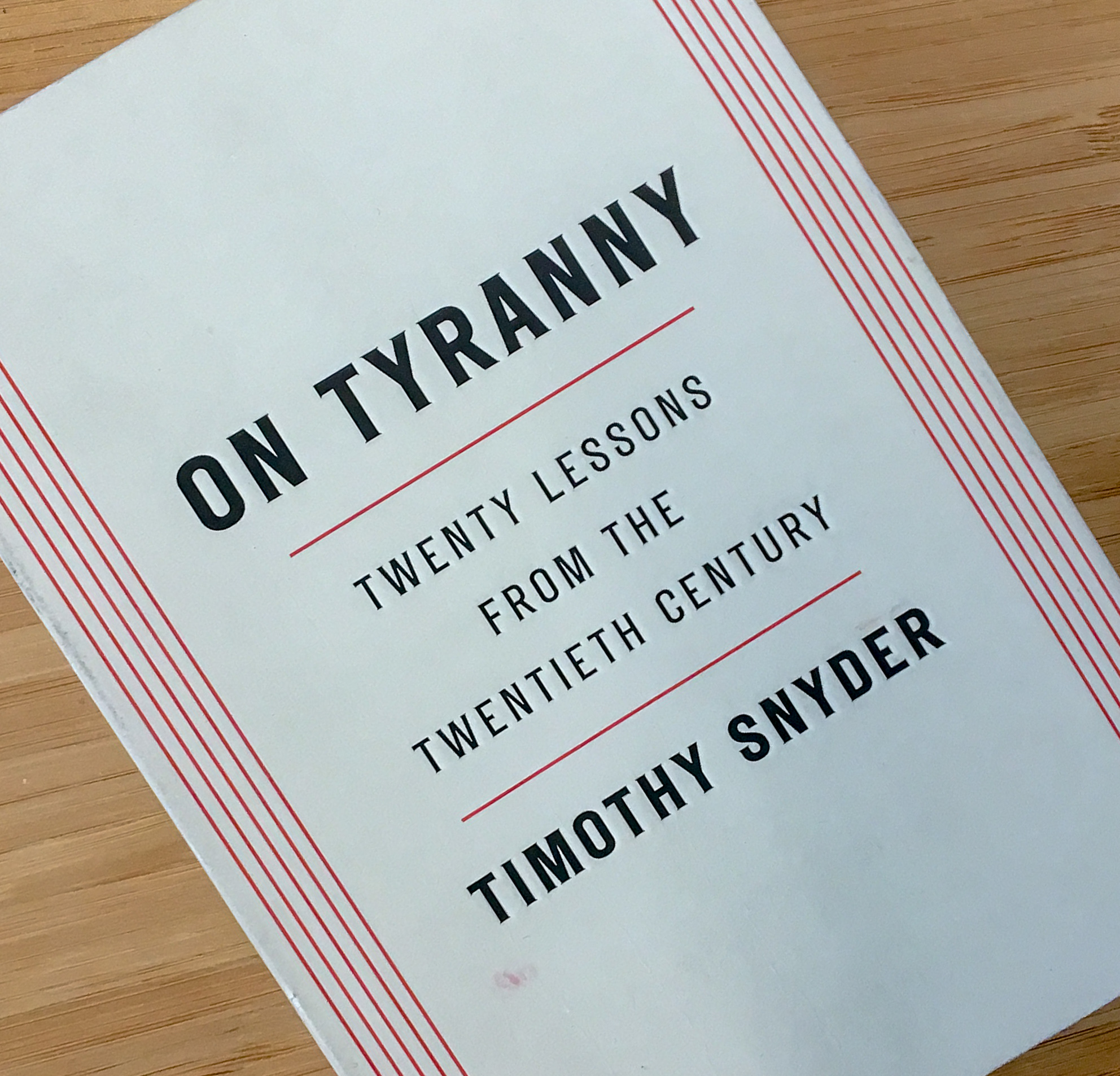On Tyranny
Awhile ago, I picked up On Tyranny for $2 at a used bookstore in New Haven, Connecticut. I'd forgotten my book in my hotel room, and figured Timothy Snyder's slim volume could serve as something to get me through a day of downtime.
I devoured the book's 20 lessons in less than 20 hours, but one of those lessons still sticks with me weeks later: Be Kind To Our Language. In his sixth chapter, Snyder extolls the virtues of avoiding buzzwords, of thinking for yourself, and - above all else - of reading to defend the soundness of your mind. I've excerpted my favorite bits below:
“More than half a century ago, the classic movements of totalitarianism warned of the domination of screens, the suppression of books, the narrowing of vocabularies, and the associated difficulties of thought. In Ray Bradbury’s Fahrenheit 451, published in 1953, firemen find and burn books while most citizens watch interactive television. In George Orwell’s 1984, published in 1949, books are banned and television is a two-way, allowing the government to observe citizens at all times. In 1984, the language of visual media is highly constrained, to starve the public of the concepts needed to think about the present, remember the past, and consider the future. One of the regime’s projects is to limit the language further by eliminating ever more words with each edition of the official dictionary.”
”Staring at screens is perhaps unavoidable, but the two-dimensional world makes little sense unless we can draw upon a mental armory that we have developed somewhere else. When we repeat the same words and phrases that appear in the daily media, we accept the absence of a larger framework. To have such a framework requires more concepts, and having more concepts requires reading. So get the screens out of your room and surround yourself with books. The characters is Orwell’s and Bradbury’s books could not do this – but we still can.”
”What to read? Any good novel enlivens our ability to think about ambiguous situations and judge the intention of others. Fyodor Dostoevsky’s The Brothers Karamazov and Milan Kundera’s The Unbearable Lightness of Being might suit our moment. Sinclair Lewis’s novel It Can’t Happen Here is perhaps not a great work of art; Philip Roth’s The Plot Against America is better. One novel known by millions of young Americans that offers an account of tyranny and resistance is J.K. Rowling’s Harry Potter and the Deathly Hallows. If you or your friends or your children did not read it that way the first time, then it bears reading again.”

